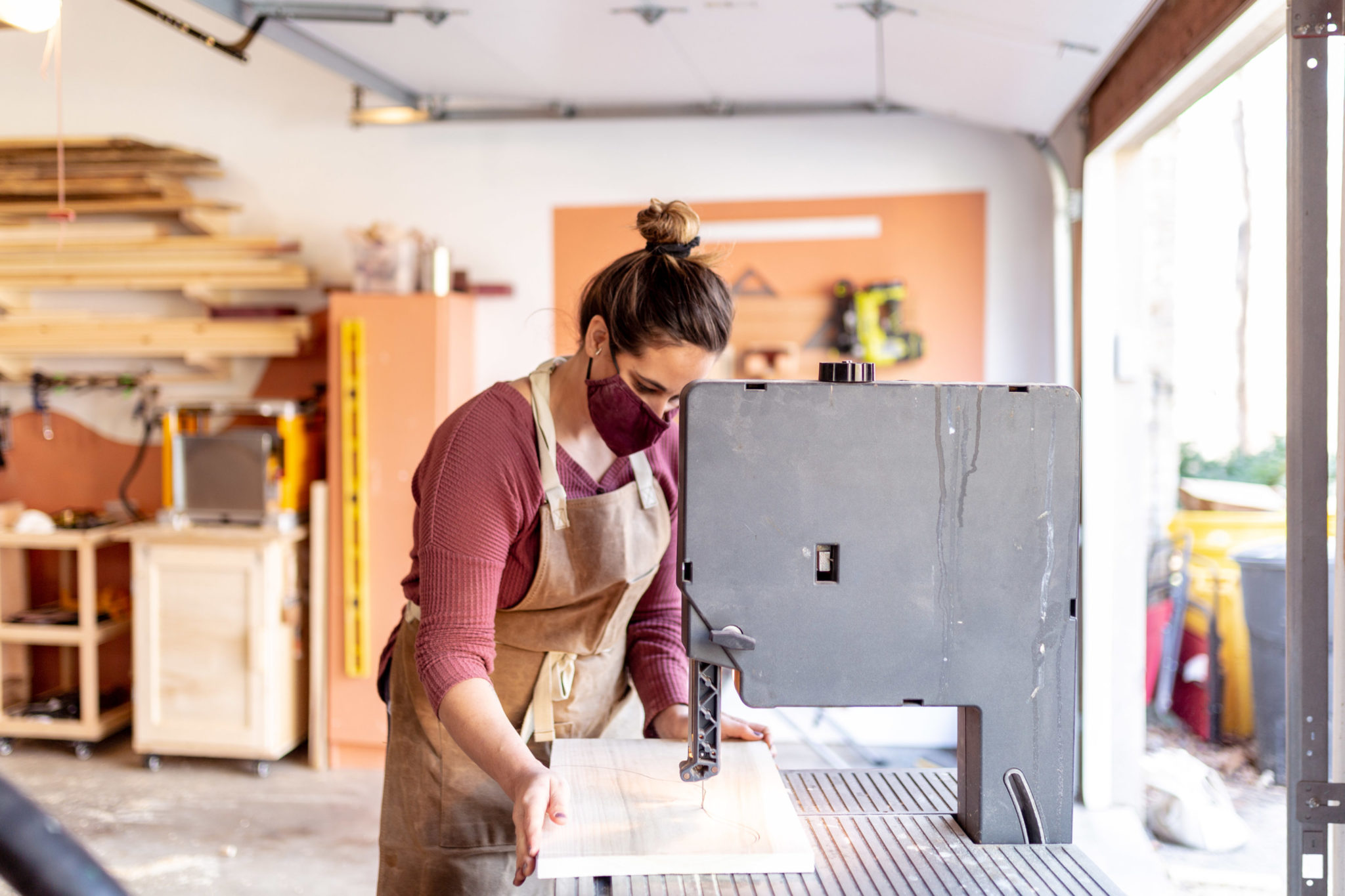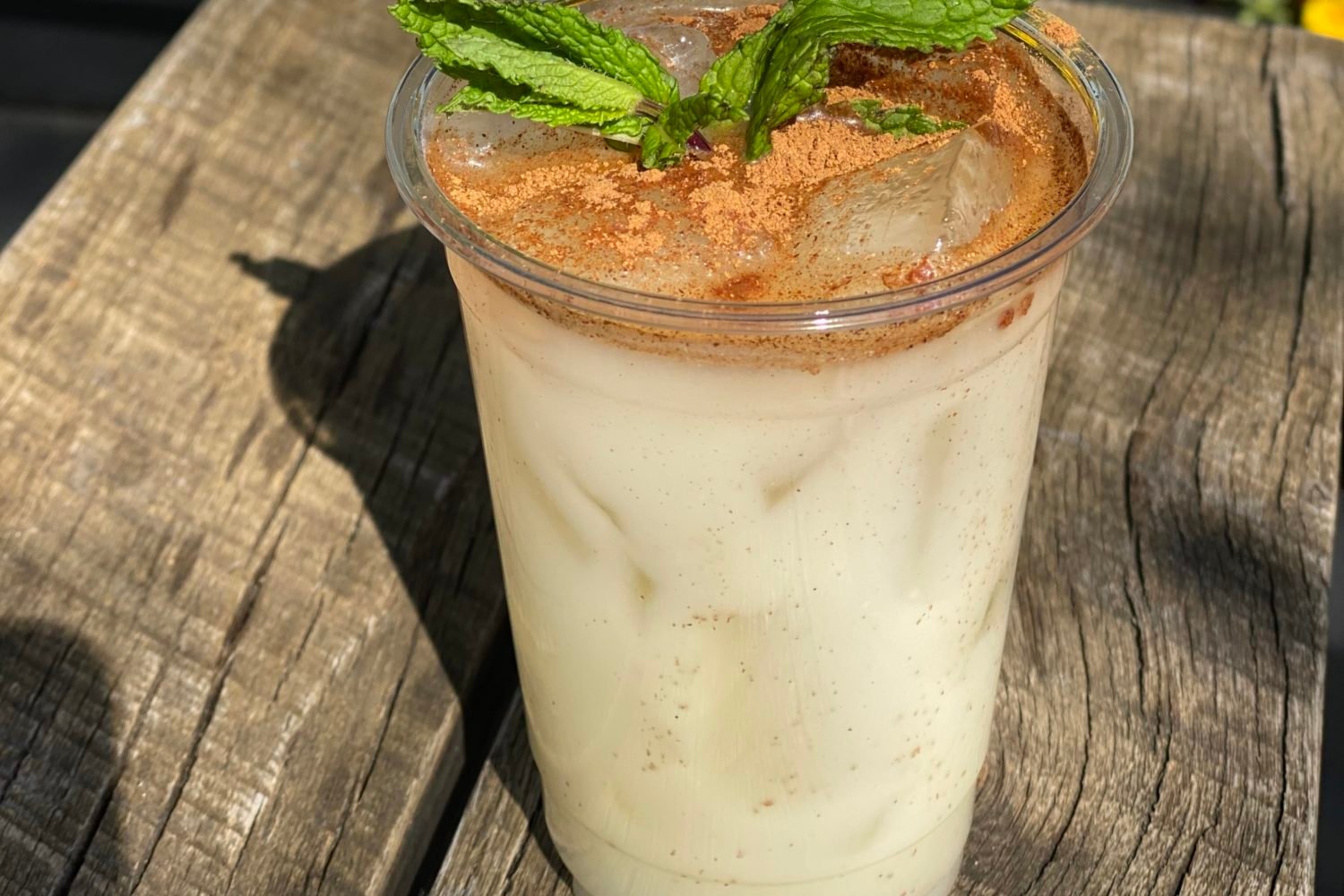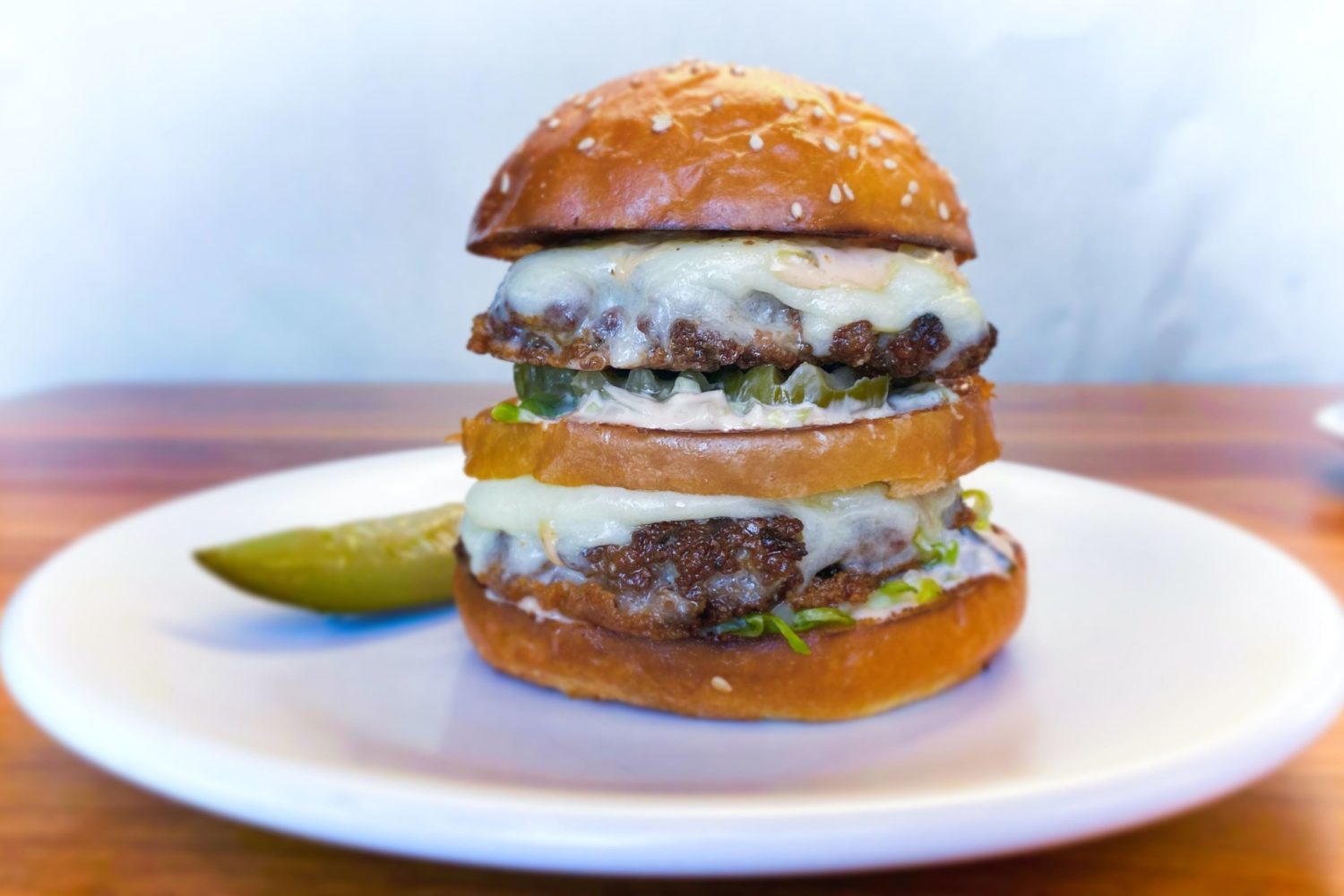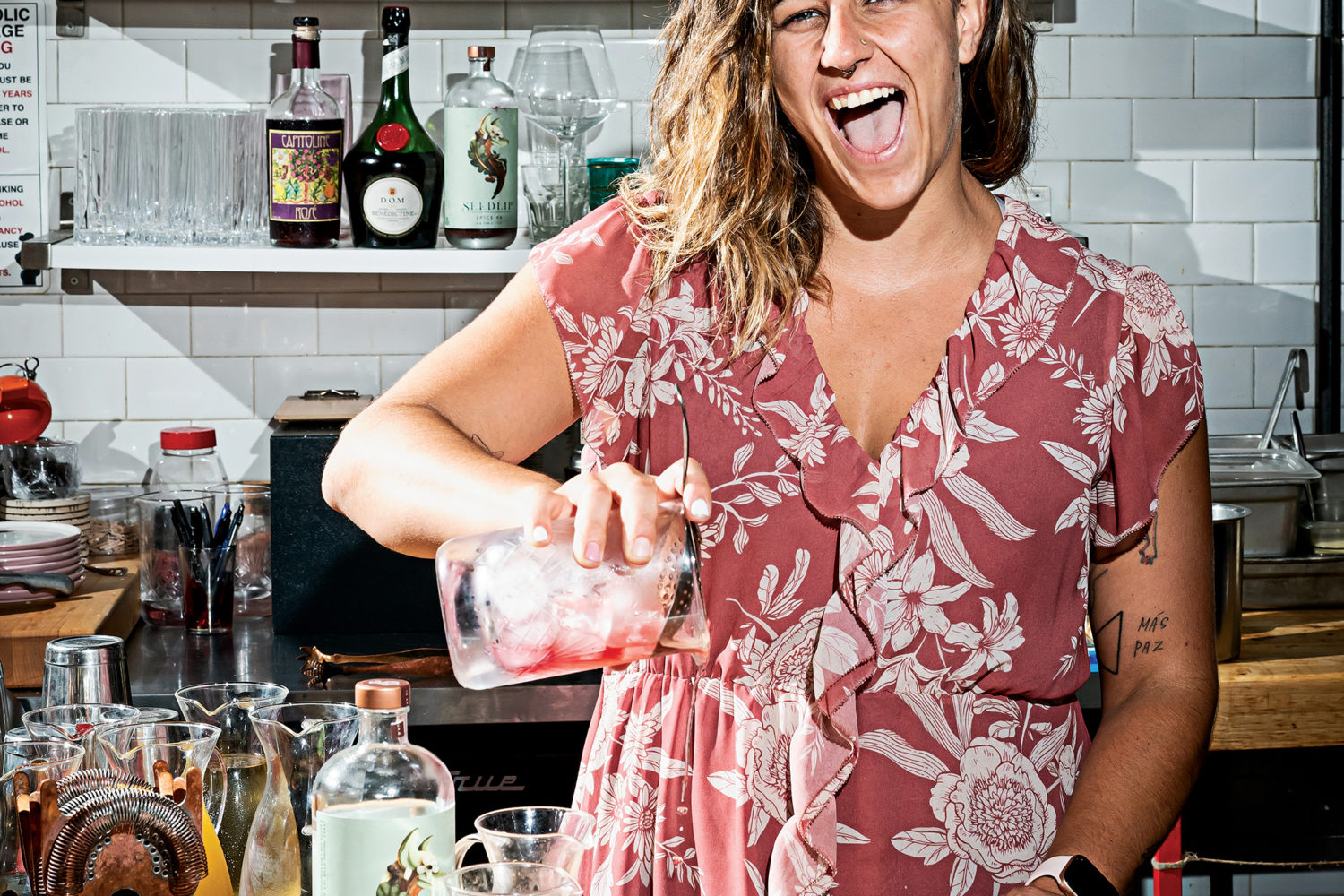Pom Pom owner and cocktail star Carlie Steiner was among the restaurateurs to announce a permanent closure in the early days of pandemic. She’d done the pivots—selling groceries at first, then delivering curated packages of wine. Ultimately, though, she didn’t see a way for her tiny 24-seat Petworth restaurant to survive. Same for Dos Mamis, the cocktail bar she operated across the street with fellow restaurateur Anna Bran Leis.
“I went through a huge identity crisis. I had no idea who I was without being a restaurateur,” says Steiner, who rose to national attention after opening acclaimed Himitsu. “Losing that felt like I was nobody. I felt like a failure.”
Steiner and her partner decided to move out to Annapolis where they could live more affordably with more space. She borrowed a friend’s Playstation 4 and spent a solid two weeks playing Tony Hawk, an escape from financial worries and depression.
“I had this moment where I was like, ‘This is worse. You’re making it worse for yourself,'” Steiner says. She realized she had to get off the couch, literally and metaphorically, and do something. So, she went on Facebook marketplace and found a free hutch. Her partner, who flips houses, happened to own a lot of carpentry tools, so Steiner decided she would figure out how to spruce up the piece and sell it. Never mind that the closest thing she’d done was assemble Ikea furniture.
“I convinced myself that this was how I was going to make money,” she says. But more than that, it’s turned out to be the thing that’s helped her regain her confidence to ultimately reinvent her place in the cocktail world.
Steiner warmed up her woodworking skills building… a square. Then she thought: Why simply refurbish things when you could build them? “I just started falling in love with all the different things you can do with wood,” she says. “I go in there and it’s like my church. Table saws are not safe, but it feels comforting to just slide a piece of wood down a huge, very quick-running saw.”
She’s made exotic wooden rings, cutting boards in the shapes of different countries, a coffee table, dining room table, and other odds and ends.
“To learn that I can do other things has been a very important thing for my happiness here,” Steiner says. “I’m really glad I took a break. I needed it to feel passionate again.”
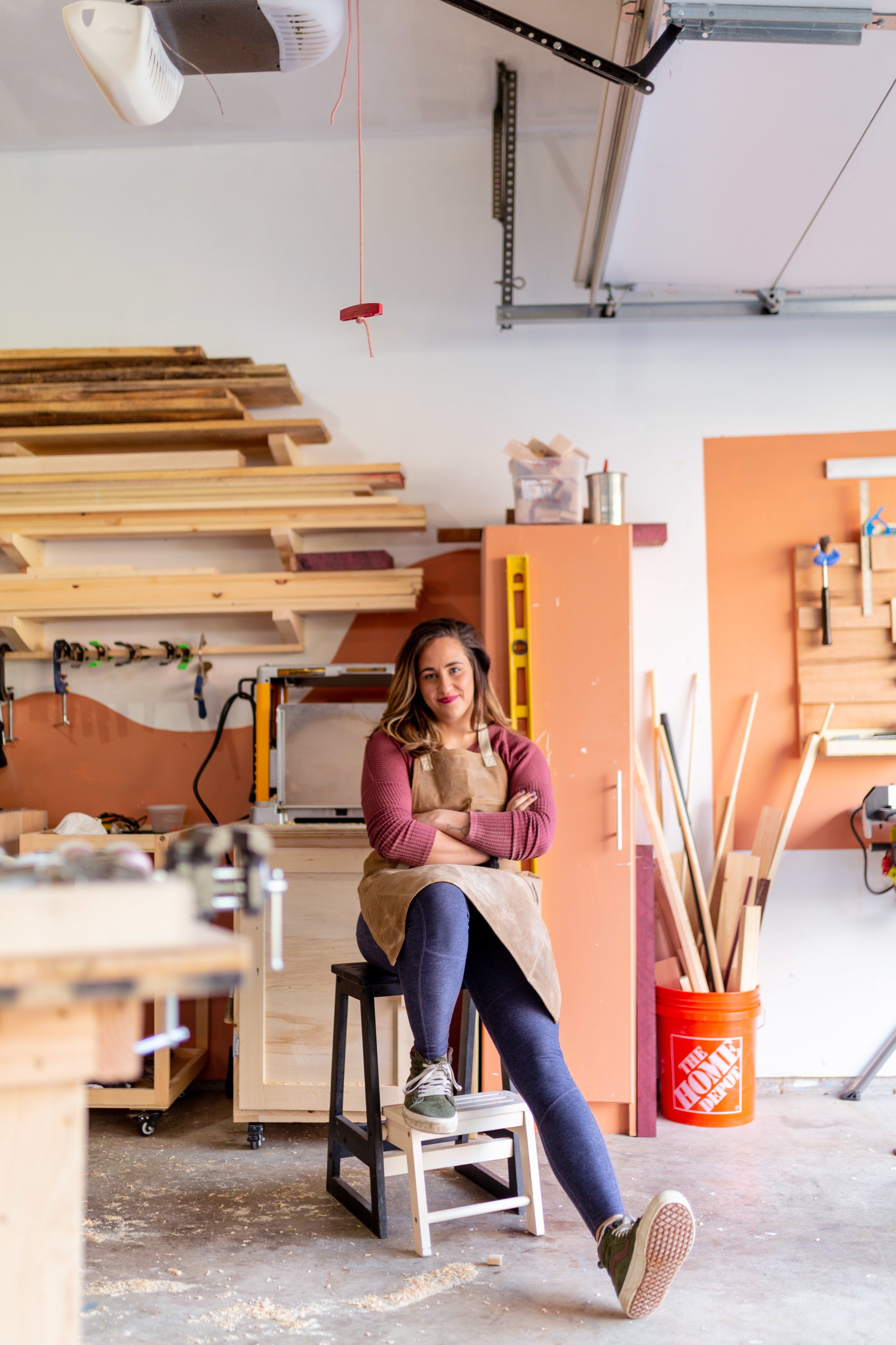
It’s also given her the kick she needed to jump back into the cocktail world—one where she was previously making waves by sourcing from all-female producers or creating unexpected combinations like a white rum and nori drink. She joined Bolivian wine and spirit importer Chufly Imports as partner and “director of engagement.” She’s also launched Seco Cocktails, offering public and private virtual cocktail classes. She’s tried to differentiate herself with a “very quality set” that makes the room feel like a bar “and you’re just a patron at a bar.”
Steiner has a slew of holiday parties lined up, but she’s banking on the idea that such Zoom gatherings will continue to be popular even after the pandemic, especially as companies look for more affordable ways to bring people together. (Classes for up to 15 are $500, just over $30 per person.) In a post-Covid world, she imagines she’ll also offer some face-to-face classes. She has no plans to return to the restaurant world.
Steiner’s goal is also to offer Zoom trainings to fellow bartenders, teaching them how to transfer their skills to a virtual setting like she has. Ultimately, woodworking has turned out to be more of a “self-funding hobby” than a lucrative new career—at least for now. Most of her projects have been sold to friends, though she is taking custom cutting board orders.
“Why I started [cocktail classes] was actually woodworking,” Steiner says. “I benefitted so much from learning a new skill that I was like, ‘This is what people need.’ People need to learn something new right now, because it will make them feel satisfied and it will make them feel complete in a world that’s hard to feel complete right now.”

